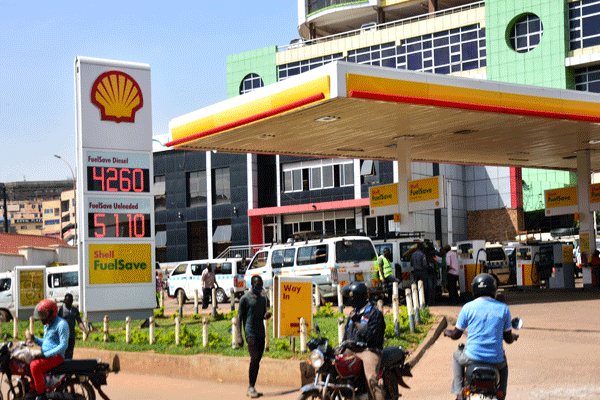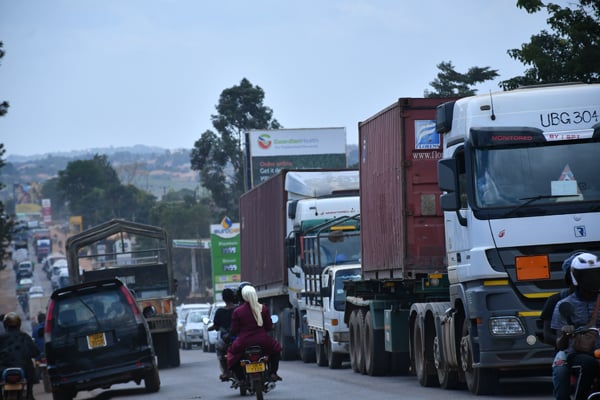Kenya resolves fuel dispute with Uganda

Motorists refuel at a Shell fuel station in Kampala in March. Fuel price crises in the country always tend to coincide with the policy decisions aimed at raising taxes on petroleum-related products. PHOTO / MICHAEL KAKUMIRIZI.
What you need to know:
- Uganda wants its oil marketing firms to continue being supplied under the open tender system through their sister companies in Kenya.
Kenya has moved to avert a diplomatic spat with Uganda over a decision to localise fuel cargo meant for Kampala.
Petroleum Principal Secretary Andrew Kamau told Business Daily on Monday that Kenya shared a record of available stocks of diesel and super for Uganda in this month’s allocation quotas, easing fears of a looming fuel shortage in the neighbouring country.
Kenya last month ordered oil marketers to localise 133.5 million litres of super and 104.7 million litres of diesel that were meant for the transit market prompting protests by the Ugandan Parliament over looming outages.
Uganda relies on Kenya for transportation of 75 percent of its fuel requirements highlighting the adverse effects in the likelihood of disruptions from Nairobi.
Kenya ordered oil marketers to localise fuel cargoes in MT Campo and MT Elka Athina in a bid to ease a biting shortage that is still affecting rural parts of the country.
But the decision came at a cost to oil dealers that mainly deal in the transit market as their supplies to the regional market took a hit.
“We had a meeting with the Ugandan ministry and their technical people because they were afraid that they were going to have fuel shortage. We explained to them and also sent them their stocks in our facilities and they are satisfied,” Mr Kamau said on Monday.
Oil marketers allocate 60 percent of their fuel imports to the local market and 40 percent for the neighbouring countries including Uganda.
Kenya’s decision to localise the two vessels at end of last month rattled Kampala, prompting the lawmakers to order Ugandan lawmakers to push for the release of all cargoes meant for the transit market.
“Our country is likely to be enveloped into new fuel prices, which may lead to escalating prices and yet this is something we have been suffering from in the recent past,” Ugandan lawmakers said last week.
The government also slashed fuel allocations for oil marketers that had increased their quotas for the neighbouring countries adding to the supply fears that have gripped Uganda.
Reduction of the fuel quotas is being implemented in three phases as the government moves in to tame the oil marketers whom it accused of economic sabotage.
Kenya has since last month been grappling with supply hitches that led to a three-week fuel shortage prompting the government to order localization of fuel cargoes meant for the export market.
The crisis that was blamed on fuel hoarding by oil marketing firms, has since eased as supplies to petrol stations improve after the government raised pump prices in monthly review.
Uganda like other neighbouring countries offer oil marketers higher returns because fuel prices are not controlled in addition to being paid instantly unlike in Kenya where the State compensation delays.
Energy officials in Uganda will tomorrow report to Parliament on the talks with Nairobi, coming barely a month after Kampala sought fixed monthly transit petroleum product quotas to ease shortage.
Kampala demanded a fixed allocation of 110,660 cubic metres of petrol and 110,400 cubic metres of diesel transported through Kenya to satisfy fresh demand following the reopening of its economy from the coronavirus lockdowns.
Energy Permanent Secretary Pauline Irene Batebe wrote the letter after a meeting by oil marketers operating in Kampala linked the fuel supply crisis facing the country to inadequate allocations from Kenya.
Uganda wants its oil marketing firms to continue being supplied under the open tender system through their sister companies in Kenya.





